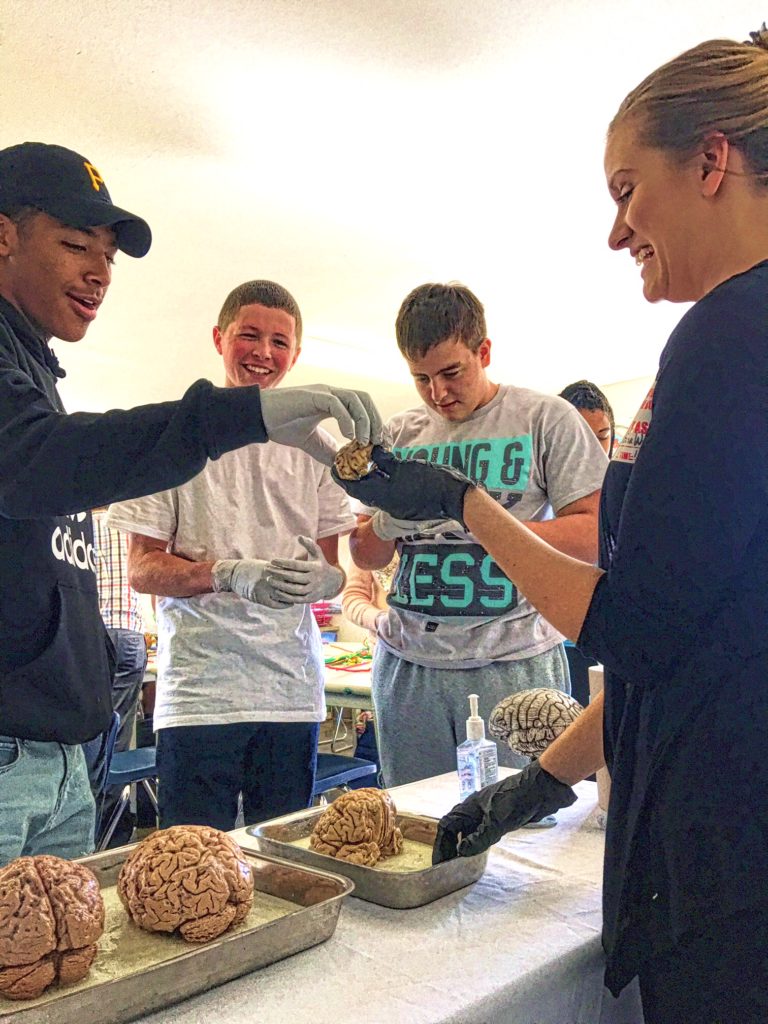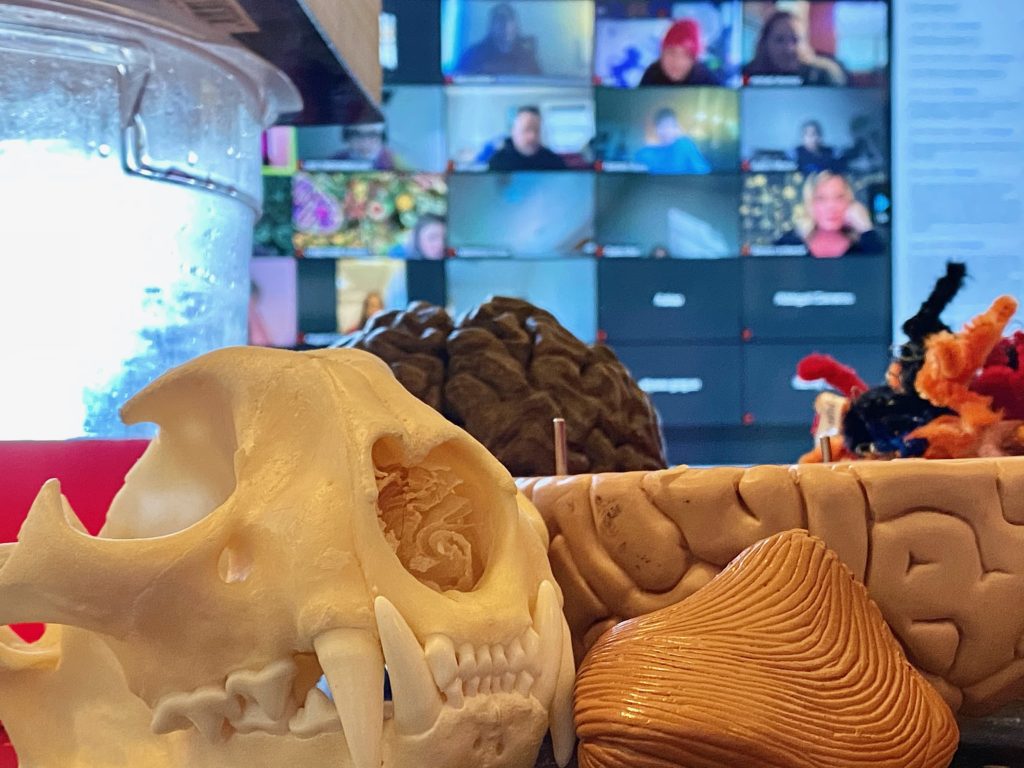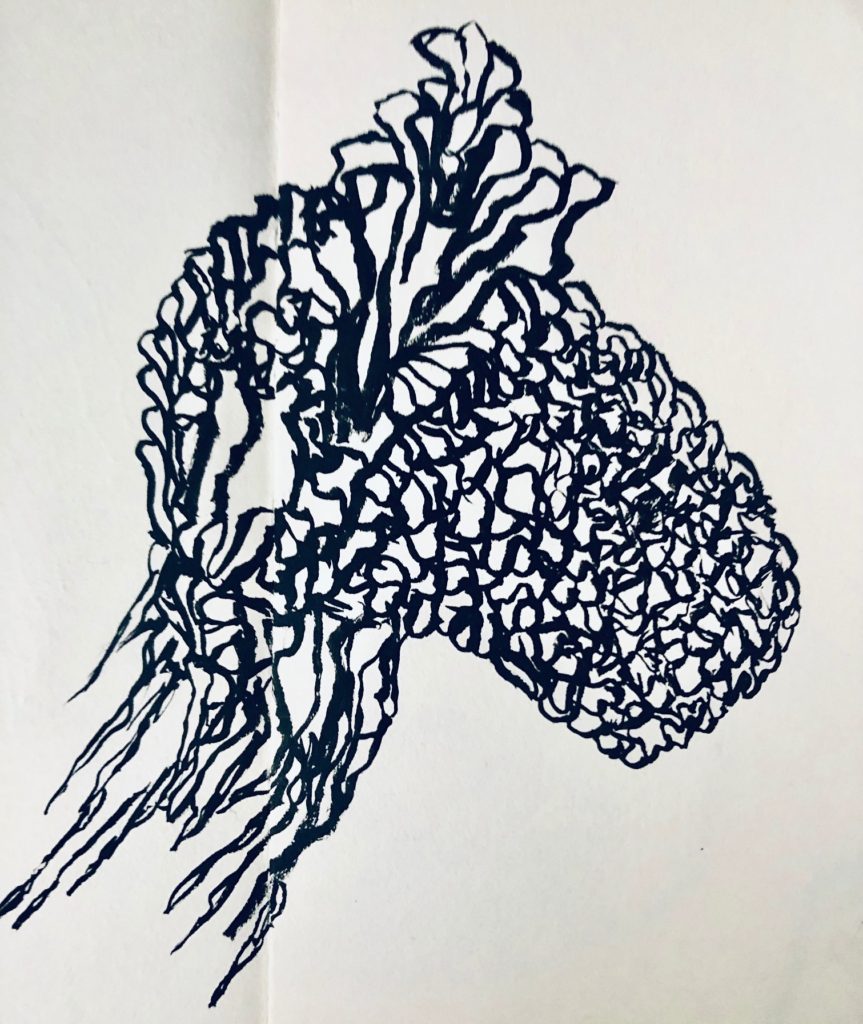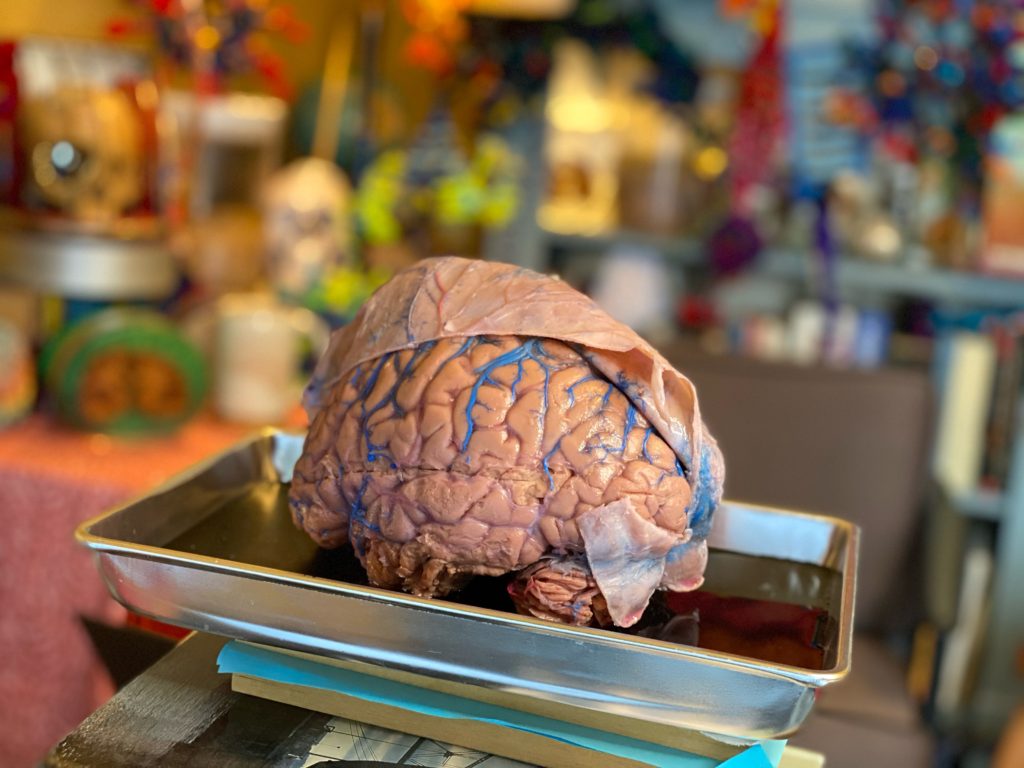We love visiting biology classrooms at Fort Vancouver High!

We’ve enjoyed many welcome opportunities to head north across the mighty Columbia to meet so many thoughtful, engaged and insightful students over the years, and teachers Coreyanne Russell and James Cederstrom are terrific collaborators and valued friends.

LEARN MORE: Why do you study the brain?
LEARN MORE: What will your students remember in five years?
LEARN MORE: Trap Squad!
LEARN MORE: Brains, biofeedback & SLEEP
LEARN MORE: Ventricles in Vancouver
Giving back
One of the immense joys of going places, genuinely listening to others, and offering your own time and enthusiasm is that you’re giving something, connecting – and helping build community, too. You’re learning, and growing.

“I tell my students, ‘When you get these jobs that you have been so brilliantly trained for, just remember that your real job is that if you are free, you need to free somebody else. If you have some power, then your job is to empower somebody else. This is not just a grab-bag candy game.”
– Toni Morrison
Pandemic connections
This year, of course, with coronavirus on the rise, we’ve been scattered to our individual rooms and screens, so we’ve been exploring ways of connecting that keep people safe.
LEARN MORE: Pandemic connections
LEARN MORE: Reconnecting our brains – one cell at a time
LEARN MORE: Action and Potential

So this week we gathered virtually (via Zoom)
A community of learners and outreach volunteers, including Melissa Sek, Roman Cimkovich, Annabelle Winking, Connie Tran, Karsen Coelho, Lucille Thornhill, Amy Lin, Michael Deveney, Nancy MacKenzie, Darrin Lane, Tiara Freeman and Rose Maucolin from Portland State University, Dr. Denesa Lockwood from Oregon Health and Science University, Jade Osilla from Lines for Life, Lidia Escheverria-Garcia from the University of Oregon, artists Kit S. Carlton and Cecilia Araneda, Aaron Eisen from the National University of Natural Medicine and OHSU, and Dr. Brittany Alperin, a graduate of OHSU Behavioral Neuroscience who is now a Visiting Assistant Professor of Cognitive Neuroscience at the University of Richmond!

Neural doodling by Kit S. Carlton
LEARN MORE: Memory, Poetry, Brains
Students had questions!

So many great questions!!
“Will there ever be a time when we can access people’s memories after they’ve passed? If so, what would that look like?”
We had great fun discussing what it means to be a living brain and body, with synaptic plasticity and tremendous complexity of network connections molded from personal experience, decisions and social consequences.

Neuroscientists at the Allen Institute for Brain Science in Seattle (and elsewhere!) are seeking to map how our brain’s billions of neurons and glial cells are connected to each other – to determine the human “connectome,” or wiring diagram. But would a wiring diagram be enough?
LEARN MORE: Connectome Programs (NIH)
LEARN MORE: Human Connectome Project (USC)
LEARN MORE: Sequencing the Connectome (Allen Institute)
We considered the importance of having and perceiving a defensible body, that could be injured or feel good, for any uploaded or computer-generated artificial intelligence. One student asked if an AI might dream!
LEARN MORE: Do Androids Dream of Electric Sheep?

Yet studying the brain clearly offers fantastic opportunities for us to imagine, and dream, and perhaps to create books, movies and art based on publicly funded research. We talked about the San Junipero episode from Black Mirror, and the Upload TV series from Amazon Prime – and the potential of science-informed jobs in entertainment.
LEARN MORE: What can you do with a degree in neuroscience?
We spent an entire school day (three 85 minute Zoom sessions!) with students, teachers and volunteers, exploring some compelling questions about neuroscience. And we’re excited to return to Vancouver (virtually) again on Thursday for another day of queries, brains and art!
LEARN MORE: Noggins @ Fort Vancouver!
Thank you for inviting us back to school!
“Thank you!! Love seeing kids light up when NW Noggin’ visits!”
-Coreyanne Russell, Fort Vancouver High

MORE QUESTIONS
Check out what students want to know in Vancouver!
Because addiction has a genetic component, does the gene have to be triggered? To clarify, if alcoholism “runs in a family” if someone chose to never drink, would that tendency be passed through their genetics?
After addiction will the brain ever function as good as it would if the addiction have never effected the brain?
In the US your not allowed to drink til 21 and I know that it’s for your brain to develop but what happens around 21 that make it more ok than say 20?

How should i set myself up as a strong medical school applicant in the future?
How far back do degenerative brain diseases (such as alzhiemers and dimentia) date back to? Is there a reason why it’s so common now? Or is it just because of the lack of data in history?
i know neurons are stronger the more they are used but can you make neurons move faster?

can a person with a brain transplant have past memories from the other body?
what happens in the brain while in a coma?
what happens in the brain as we are dreaming? how come sometimes our dreams are forgotten as we wake up?
Are there any differences between a male and female brain?
Does being introduced to stimuli cause the pre-frontal cortex to develop quickly. Such as having to be more independent at a young age has been known to make children “more mature”. Is there a biological connection to this?
Are there are any concepts/theories in neuroscience surrounding consciousness that particularly interest you?
Can plants think? Are mushroom mycelium networks like the networks in our brain?

LEARN MORE: The Mycelium as a Network
LEARN MORE: The mind of plants: Thinking the unthinkable
when a child is growing what is the best way to build thier neurons?
how does trauma change the brain long term? are there ways to reverse the effects over time?
Does the introduction of metacognition at a young age stimulate brain activity and cause a better productivity in the brain later on?

If we were able to program an AI, could they develop a consciousness including memory & dreaming “feelings”?
How does our brain determine what smells are good or bad?
Why does smell stimulate memory?

LEARN MORE: One landscape contains the other…
how does being color blind work?
What does smoking do to the brain over a span of 40 years (I randomly came up with that number)?
How are mental illness medically proven?
How does our brain determine what emotions to feel?
What happens to your brain when you have a heart attack

Is that a real skull
How much does a human brain cost?
Were the animal skulls donated?
What does the brain look like when a person is paralyzed?



